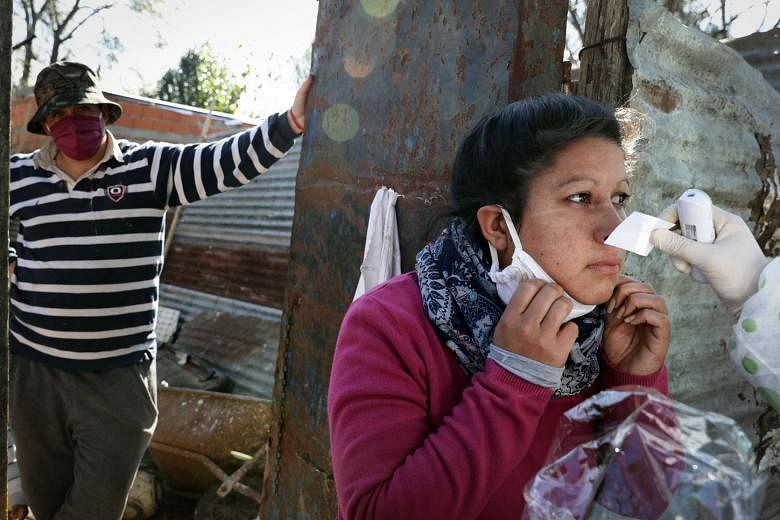If you suddenly lose your sense of smell, there is a chance you may be infected with the coronavirus.
Last month, a global survey on the loss of the sense of smell or taste in people who have tested positive for Covid-19 found that for some, the loss of the ability to smell (anosmia) can be an early or the only symptom of infection.
Preliminary results of the survey by the Global Consortium for Chemosensory Research (GCCR) indicated that Covid-19 is associated with severe impairment of smell, taste and chemesthesis. GCCR is a group of international scientists investigating the links between chemical senses and Sars-CoV-2.
As more evidence of anosmia being a symptom of Covid-19 emerges, it is used more frequently to screen for possible cases.
After the World Health Organisation and the United States, Britain added anosmia to its official list of Covid-19 symptoms last month, asking those with continuous cough or fever or anosmia to self-isolate.
In Singapore, anosmia is included in the Ministry of Health website's list of Covid-19 symptoms and in circulars to doctors, as Dr Barnaby Young, a consultant at the National Centre for Infectious Diseases (NCID), pointed out.
"In Covid-19, loss of taste or smell usually occurs along with the other typical features of a viral infection such as fever, cough, sore throat and rhinorrhea," he said.
"Curiously, a few patients have presented with loss of smell as the only symptom, but this is unusual - less than one out of a hundred based on a survey conducted in the NCID screening centre in March."
For weeks, scientists have argued that loss of the sense of smell is a symptom of Covid-19, as more and more anecdotal reports on the rapid onset of this symptom surface.
Anosmia can also affect your sense of taste, as the two sensations are closely linked.
As early as March 20, ENT UK, a professional body of ear, nose and throat surgeons in Britain, had said in a joint statement with the British Rhinological Society that anosmia may be a symptom of Covid-19, and it could be used to screen otherwise asymptomatic patients.
Professor Carl Philpott, who is part of GCCR and a professor of rhinology and olfactology at the University of East Anglia's Norwich Medical School, said the multinational study was launched in response to these reports. The study's early results came from 4,039 respondents, who hail from 41 countries, including Singapore.
To date, 35,000 respondents worldwide have done the survey.
"Although patients frequently report smell and taste loss, they are almost always only suffering smell loss on closer inspection.
"This is because people are unable to easily separate smell of food (retronasal olfaction) from true taste (gustation)," Prof Philpott told The Straits Times.
The study offers more evidence that Covid-19 may affect more than just smell, with true taste and also nasal burning being reported, he said. "Nasal obstruction was also found to be common but its extent didn't correlate with the degree of smell loss," he said.
He added that loss of the sense of smell appears to be affecting women (72 per cent) and younger patients more, and that women may be more prone to it due to oestrogen receptors.
The loss of ability to taste or smell is a common feature of viral respiratory infections, from the common cold to influenza, and this is probably because of the nasal congestion caused by the infection, said Dr Young.
"It is possible that Covid-19 infection causes some irritation or inflammation to the olfactory nerves (in addition to nasal congestion) and this is something we are investigating," he said.
As to the frequency of this symptom, Dr Young said there is no good data from the patients and it is something they are investigating.
For most patients, loss of the sense of smell or taste resolves along with the other symptoms, though a minority have reported it persisting for a few weeks or months, he said.
Prof Philpott said smell loss typically happens suddenly and then gradually comes back in seven to 14 days. He said it was still too early to tell how many people may be left with more permanent smell loss.












